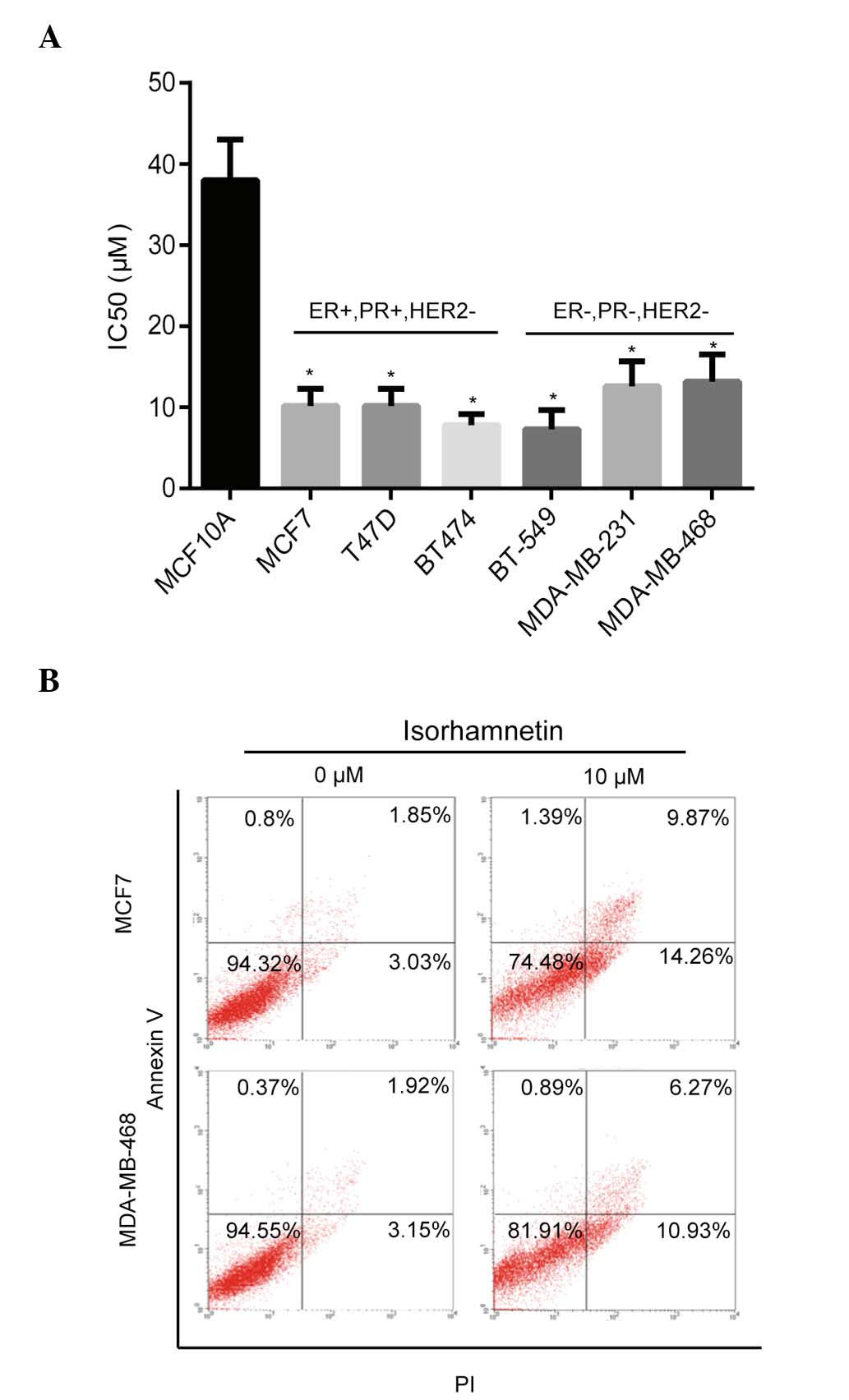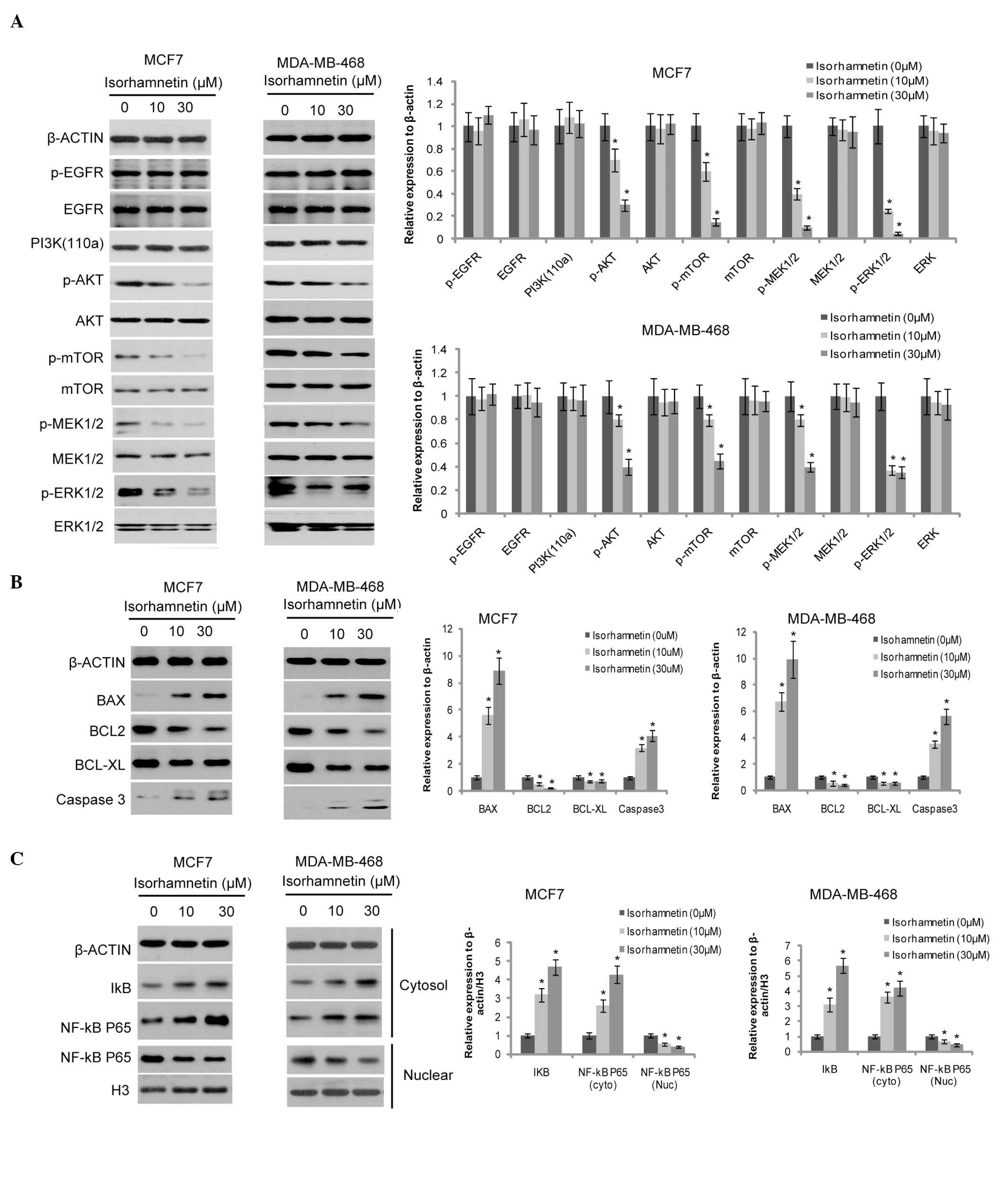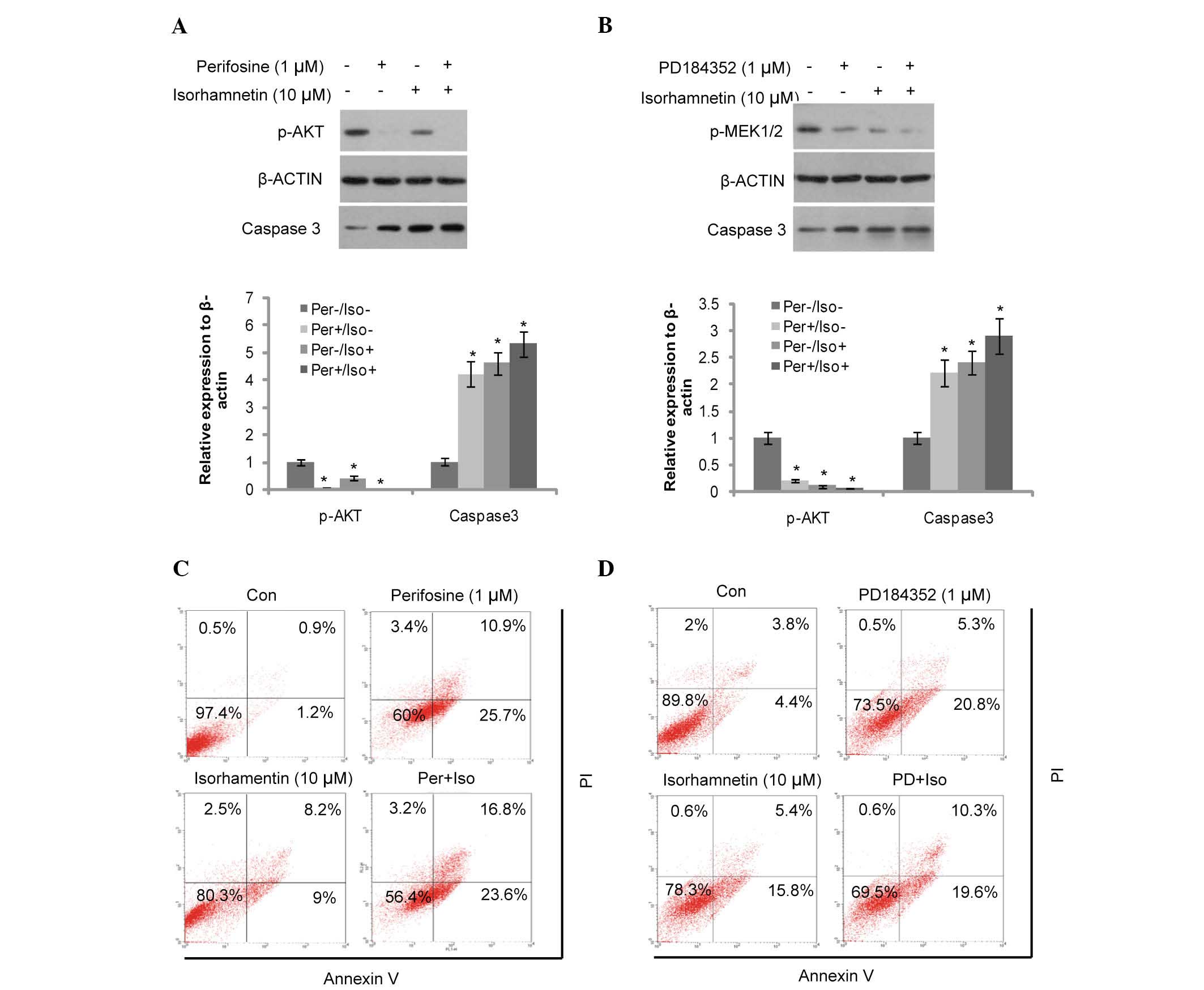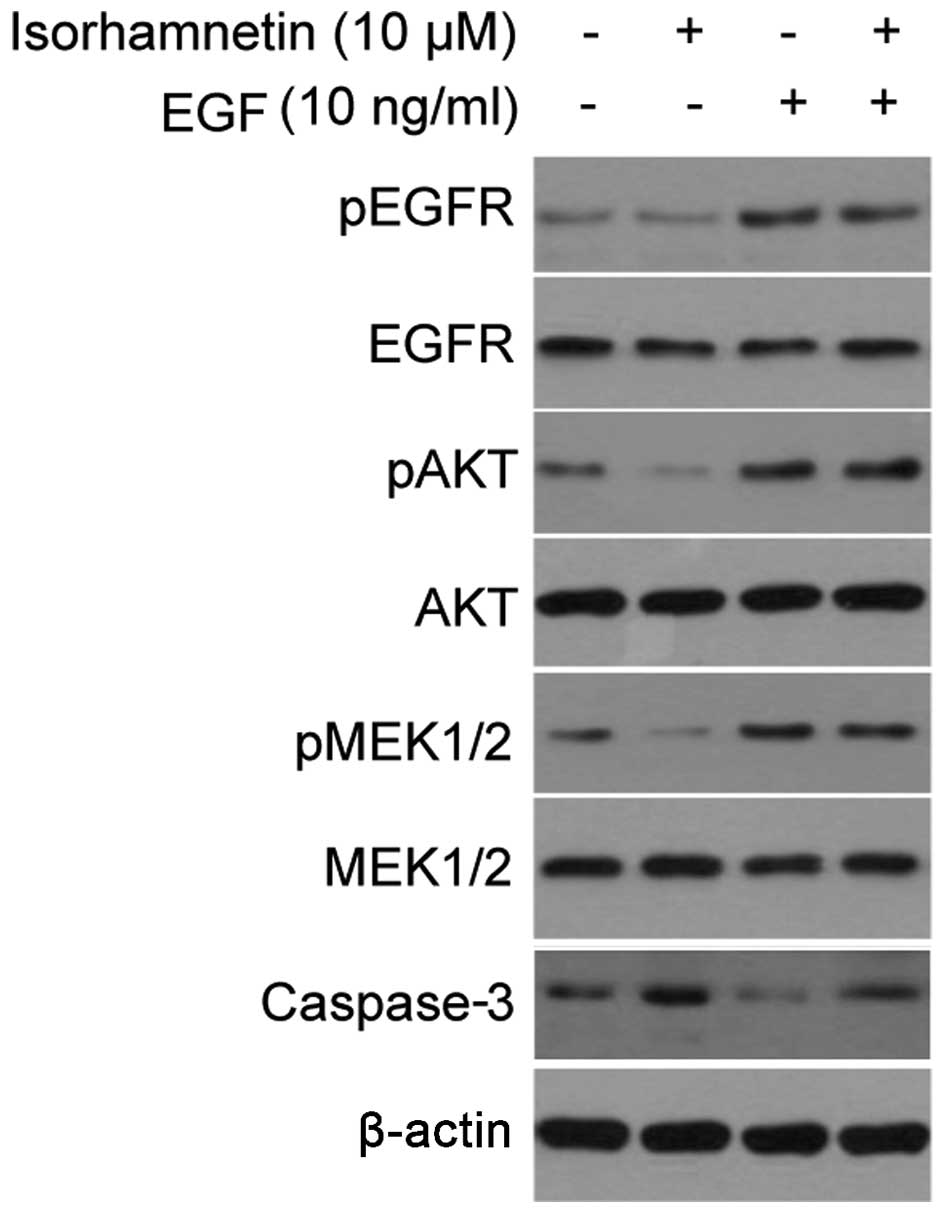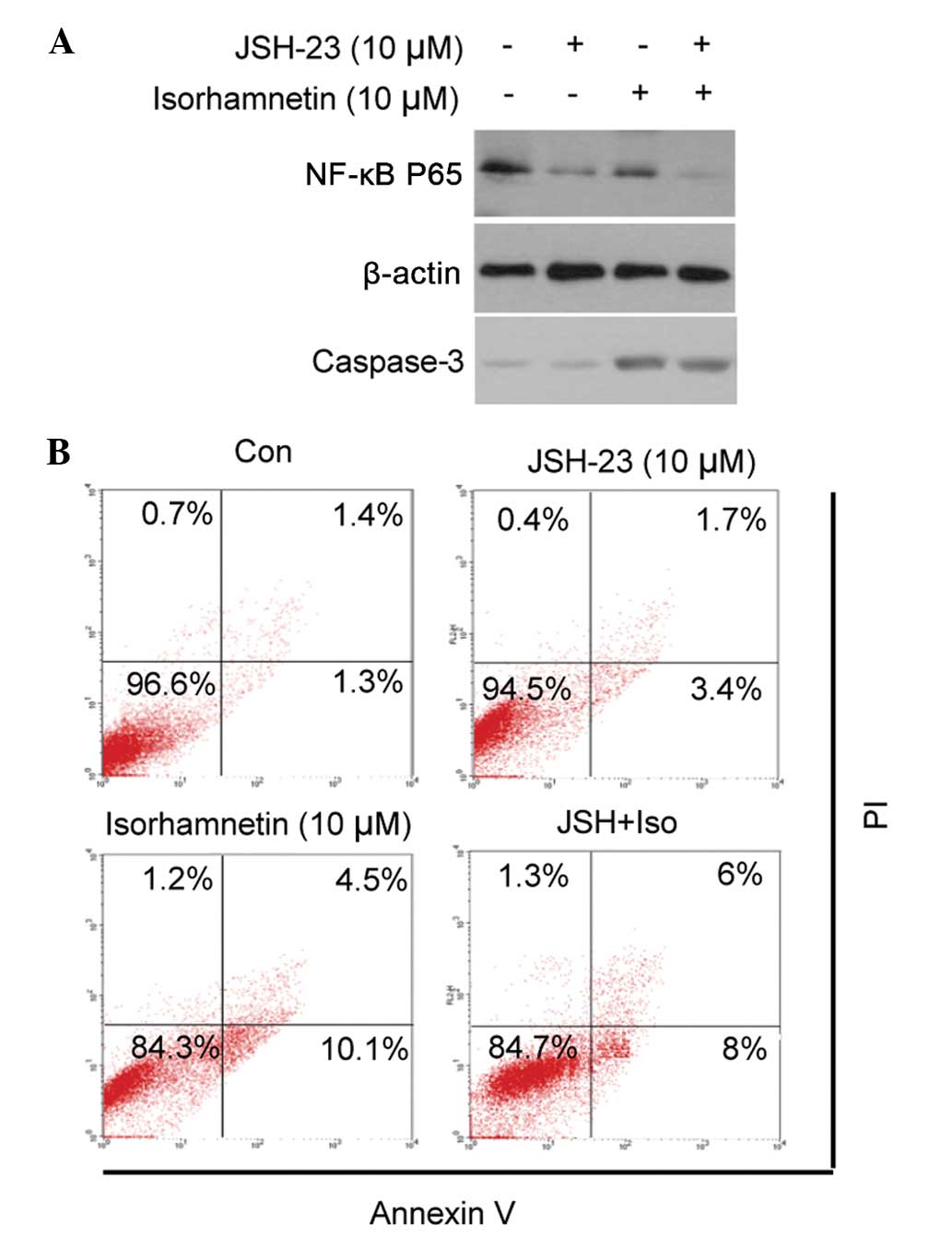|
1
|
American Cancer Society: Cancer Facts
& Figures 2013. American Cancer Society; Atlanta: 2013
|
|
2
|
Chen W, Zheng R, Zhang S, Zhao P, Li G, Wu
L and He J: Report of incidence and mortality in China cancer
registries, 2009. Chin J Cancer Res. 25:10–21. 2013.PubMed/NCBI
|
|
3
|
Ferlay J, Steliarova-Foucher E,
Lortet-Tieulent J, Rosso S, Coebergh JW, Comber H, Forman D and
Bray F: Cancer incidence and mortality patterns in Europe:
Estimates for 40 countries in 2012. Eur J Cancer. 49:1374–1403.
2013. View Article : Google Scholar : PubMed/NCBI
|
|
4
|
Holohan C, Van Schaeybroeck S, Longley DB
and Johnston PG: Cancer drug resistance: An evolving paradigm. Nat
Rev Cancer. 13:714–726. 2013. View
Article : Google Scholar : PubMed/NCBI
|
|
5
|
Massarweh S and Schiff R: Resistance to
endocrine therapy in breast cancer: Exploiting estrogen
receptor/growth factor signaling crosstalk. Endocr Relat Cancer.
13(Suppl 1): S15–S24. 2006. View Article : Google Scholar
|
|
6
|
Geyer CE, Forster J, Lindquist D, Chan S,
Romieu CG, Pienkowski T, Jagiello-Gruszfeld A, Crown J, Chan A,
Kaufman B, et al: Lapatinib plus capecitabine for HER2-positive
advanced breast cancer. N Engl J Med. 355:2733–2743. 2006.
View Article : Google Scholar : PubMed/NCBI
|
|
7
|
Guarneri V and Conte P: Metastatic breast
cancer: Therapeutic options according to molecular subtypes and
prior adjuvant therapy. Oncologist. 14:645–656. 2009. View Article : Google Scholar : PubMed/NCBI
|
|
8
|
Fedele P, Calvani N, Marino A, Orlando L,
Schiavone P, Quaranta A and Cinieri S: Targeted agents to reverse
resistance to endocrine therapy in metastatic breast cancer: Where
are we now and where are we going? Crit Rev Oncol Hematol.
84:243–251. 2012. View Article : Google Scholar : PubMed/NCBI
|
|
9
|
Miller TW, Balko JM and Arteaga CL:
Phosphatidylinositol 3-kinase and antiestrogen resistance in breast
cancer. J Clin Oncol. 29:4452–4461. 2011. View Article : Google Scholar : PubMed/NCBI
|
|
10
|
Pérez-Tenorio G and Stål O; Southeast
Sweden Breast Cancer Group: Activation of Akt/PKB in breast cancer
predicts a worse outcome among endocrine treated patients. Br J
Cancer. 86:540–545. 2002. View Article : Google Scholar : PubMed/NCBI
|
|
11
|
deGraffenried LA, Friedrichs WE, Russell
DH, Donzis EJ, Middleton AK, Silva JM, Roth RA and Hidalgo M:
Inhibition of mTOR activity restores tamoxifen response in breast
cancer cells with aberrant Akt Activity. Clin Cancer Res.
10:8059–8067. 2004. View Article : Google Scholar : PubMed/NCBI
|
|
12
|
Kirkegaard T, Witton CJ, McGlynn LM, Tovey
SM, Dunne B, Lyon A and Bartlett JM: Akt activation predicts
outcome in breast cancer patients treated with tamoxifen. J Pathol.
207:139–146. 2005. View Article : Google Scholar : PubMed/NCBI
|
|
13
|
Tokunaga E, Kimura Y, Mashino K, Oki E,
Kataoka A, Ohno S, Morita M, Kakeji Y, Baba H and Maehara Y:
Activation of PI3K/Akt signaling and hormone resistance in breast
cancer. Breast Cancer. 13:137–144. 2006. View Article : Google Scholar : PubMed/NCBI
|
|
14
|
Donovan JC, Milic A and Slingerland JM:
Constitutive MEK/MAPK activation leads to p27(Kip1) deregulation
and anti-estrogen resistance in human breast cancer cells. J Biol
Chem. 276:40888–40895. 2001. View Article : Google Scholar : PubMed/NCBI
|
|
15
|
Jin W, Wu L, Liang K, Liu B, Lu Y and Fan
Z: Roles of the PI-3K and MEK pathways in Ras-mediated
chemoresistance in breast cancer cells. Br J Cancer. 89:185–191.
2003. View Article : Google Scholar : PubMed/NCBI
|
|
16
|
Normanno N, De Luca A, Maiello MR,
Campiglio M, Napolitano M, Mancino M, Carotenuto A, Viglietto G and
Menard S: The MEK/MAPK pathway is involved in the resistance of
breast cancer cells to the EGFR tyrosine kinase inhibitor
gefitinib. J Cell Physiol. 207:420–427. 2006. View Article : Google Scholar : PubMed/NCBI
|
|
17
|
Yao H, Xu W, Shi X and Zhang Z: Dietary
flavonoids as cancer prevention agents. J Environ Sci Health C
Environ Carcinog Ecotoxicol Rev. 29:1–31. 2011. View Article : Google Scholar : PubMed/NCBI
|
|
18
|
Asensi M, Ortega A, Mena S, Feddi F and
Estrela JM: Natural polyphenols in cancer therapy. Crit Rev Clin
Lab Sci. 48:197–216. 2011. View Article : Google Scholar : PubMed/NCBI
|
|
19
|
Cushnie TP and Lamb AJ: Recent advances in
understanding the antibacterial properties of flavonoids. Int J
Antimicrob Agents. 38:99–107. 2011. View Article : Google Scholar : PubMed/NCBI
|
|
20
|
Gupta SC, Kim JH, Prasad S and Aggarwal
BB: Regulation of survival, proliferation, invasion, angiogenesis
and metastasis of tumor cells through modulation of inflammatory
pathways by nutraceuticals. Cancer Metastasis Rev. 29:405–434.
2010. View Article : Google Scholar : PubMed/NCBI
|
|
21
|
Ma G, Yang C, Qu Y, Wei H, Zhang T and
Zhang N: The flavonoid component isorhamnetin in vitro inhibits
proliferation and induces apoptosis in Eca-109 cells. Chem Biol
Interact. 167:153–160. 2007. View Article : Google Scholar : PubMed/NCBI
|
|
22
|
Suomela JP, Ahotupa M, Yang B, Vasankari T
and Kallio H: Absorption of flavonols derived from sea buckthorn
(Hippophaë rhamnoides L.) and their effect on emerging risk factors
for cardiovascular disease in humans. J Agric Food Chem.
54:7364–7369. 2006. View Article : Google Scholar : PubMed/NCBI
|
|
23
|
Shi C, Fan LY, Cai Z, Liu YY and Yang CL:
Cellular stress response in Eca-109 cells inhibits apoptosis during
early exposure to isorhamnetin. Neoplasma. 59:361–369. 2012.
View Article : Google Scholar : PubMed/NCBI
|
|
24
|
Ramachandran L, Manu KA, Shanmugam MK, Li
F, Siveen KS, Vali S, Kapoor S, Abbasi T, Surana R, Smoot DT, et
al: Isorhamnetin inhibits proliferation and invasion and induces
apoptosis through the modulation of peroxisome
proliferator-activated receptor γ activation pathway in gastric
cancer. J Biol Chem. 287:38028–38040. 2012. View Article : Google Scholar : PubMed/NCBI
|
|
25
|
Boubaker J, Ben Sghaier M, Skandrani I,
Ghedira K and Chekir-Ghedira L: Isorhamnetin 3-O-robinobioside from
Nitraria retusa leaves enhance antioxidant and antigenotoxic
activity in human chronic myelogenous leukemia cell line K562. BMC
Complement Altern Med. 12:1352012. View Article : Google Scholar : PubMed/NCBI
|
|
26
|
Boubaker J, Bhouri W, Ben Sghaier M,
Ghedira K, Dijoux Franca MG and Chekir-Ghedira L: Ethyl acetate
extract and its major constituent, isorhamnetin 3-O-rutinoside,
from Nitraria retusa leaves, promote apoptosis of human myelogenous
erythroleukaemia cells. Cell Prolif. 44:453–461. 2011. View Article : Google Scholar : PubMed/NCBI
|
|
27
|
Kim JE, Lee DE, Lee KW, Son JE, Seo SK, Li
J, Jung SK, Heo YS, Mottamal M, Bode AM, et al: Isorhamnetin
suppresses skin cancer through direct inhibition of MEK1 and PI3-K.
Cancer Prev Res (Phila). 4:582–591. 2011. View Article : Google Scholar
|
|
28
|
Jaramillo S, Lopez S, Varela LM,
Rodriguez-Arcos R, Jimenez A, Abia R, Guillen R and Muriana FJ: The
flavonol isorhamnetin exhibits cytotoxic effects on human colon
cancer cells. J Agric Food Chem. 58:10869–10875. 2010. View Article : Google Scholar : PubMed/NCBI
|
|
29
|
Lee HJ, Lee HJ, Lee EO, Ko SG, Bae HS, Kim
CH, Ahn KS, Lu J and Kim SH: Mitochondria-cytochrome C-caspase-9
cascade mediates isorhamnetin-induced apoptosis. Cancer Lett.
270:342–353. 2008. View Article : Google Scholar : PubMed/NCBI
|
|
30
|
Li C, Yang X, Chen C, Cai S and Hu J:
Isorhamnetin suppresses colon cancer cell growth through the
PI3K-Akt-m TOR pathway. Mol Med Rep. 9:935–940. 2014.PubMed/NCBI
|
|
31
|
Di Carlo G, Mascolo N, Izzo AA and Capasso
F: Flavonoids: Old and new aspects of a class of natural
therapeutic drugs. Life Sci. 65:337–353. 1999. View Article : Google Scholar : PubMed/NCBI
|
|
32
|
Saud SM, Young MR, Jones-Hall YL, Ileva L,
Evbuomwan MO, Wise J, Colburn NH, Kim YS and Bobe G:
Chemopreventive activity of plant flavonoid isorhamnetin in
colorectal cancer is mediated by oncogenic Src and β-catenin.
Cancer Res. 73:5473–5484. 2013. View Article : Google Scholar : PubMed/NCBI
|















